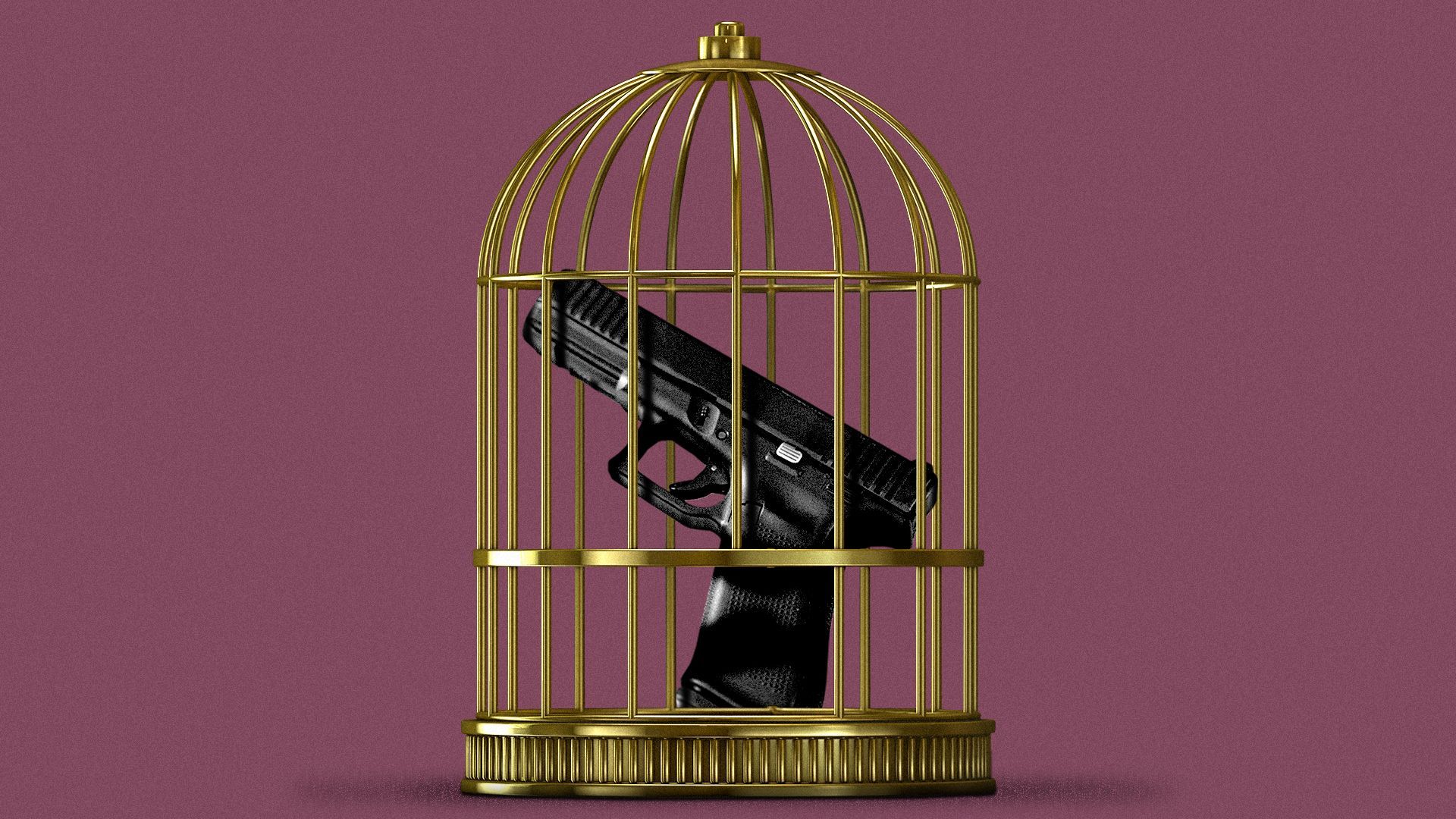How to get accused domestic abusers to turn over their guns
Add Axios as your preferred source to
see more of our stories on Google.

Illustration: Lindsey Bailey/Axios
A specialized enforcement unit in King County has made a big difference in getting people accused of domestic violence to surrender their guns, a new study has found.
Why it matters: Federal law and more than 20 state laws ban people under certain domestic violence protection orders from owning firearms. But there's often no system for enforcing those prohibitions, the authors of the study wrote.
- Of note: Researchers have found that domestic abusers who have access to firearms are much more likely to kill their intimate partners.
Details: The system used in King County could serve as "a powerful model" for other jurisdictions, the team of Seattle-based researchers wrote this month in the journal Criminology & Public Policy.
- The researchers found that after King County's Regional Domestic Violence Firearms Enforcement Unit was created in 2018, people under qualifying domestic violence protection orders were 3.3 times more likely to surrender a firearm or other dangerous weapon.
- People under such orders were also 3.4 times more likely to show proof they had complied with requirements to surrender guns, compared to the period from 2014 to 2016.
How it works: The King County unit includes prosecutors, law enforcement, family advocates and a data technician, among others, who help conduct detailed research on what firearms might be in a suspected domestic abuser's possession.
- That helps the team check whether people have actually complied with their obligation to turn those guns over, as opposed to relying "on an honor system," Alice Ellyson, the study's lead author and an assistant professor of pediatrics at the University of Washington School of Medicine, told Axios.
What they're saying: Before,"nobody was following up," Sandra Shanahan, the program manager for the King County unit, told Axios.
- "People didn't believe anything was going to happen to them," Shanahan said of people who didn't turn over their weapons. Now, that's changed, she said.
Plus: To help boost voluntary compliance, the unit does additional outreach with the people subject to domestic violence protection orders, to help ensure they know what's expected of them and how to turn over their weapons.
- The team has also provided training to judges, to make sure they know of all the situations in which they are required to order people to turn over firearms, Shanahan said.
What we're watching: Whether more jurisdictions follow King County's lead, and create similar follow-up units.
